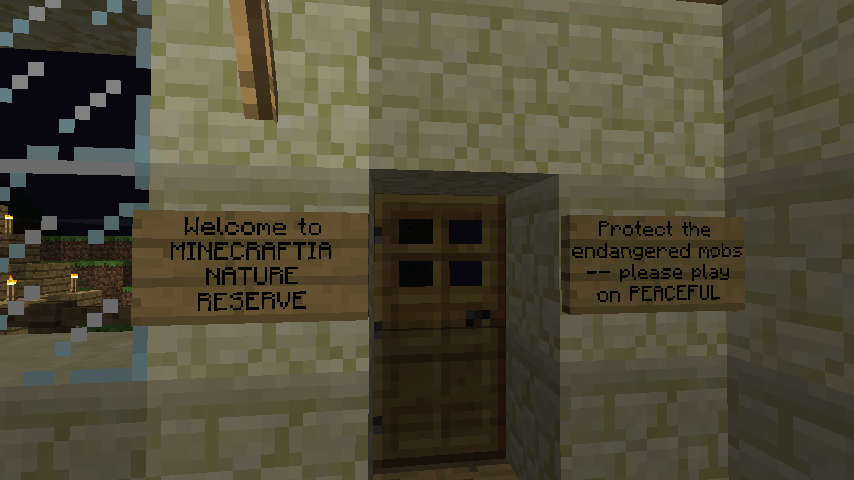So, as I was discussing with jhameia the other day, this comment about triffids in a thread at james_nicoll’s reminded me of the kosher imaginary animals post at Jeff Vandermeer’s and got me thinking about the kosher status of alien life.
I found a mention on TVTropes:
In one episode of Babylon 5, Ivanova’s childhood rabbi visits the station, triggering a brief discussion of the difficulty of determining the kosher status of non-Earth food. The Rabbi’s conclusion is that anything not mentioned in the Torah was probably OK, but he isn’t certain. Or maybe he just wasn’t too strict in his beliefs and wanted to try the food. The creator discussions mention that they would have loved to do more on it but didn’t really have time. Ivanova, the only Jewish regular on the show, solves it by not bothering to keep kosher, though she probably wouldn’t have on Earth, either.
The question must have come up in science fiction elsewhere, but I’m not well-read enough to know. Nor, unfortunately, am I knowledgeable enough about Judaism to say whether any religious authority has already addressed it. I would love to learn more (any relevant resources appreciated!). For the moment, though, I can take a stab at outlining the preliminary issues.
The first problem is whether extraterrestrial life can exist at all–which seems like a matter of simple fact but does have deeper theological implications. If you believe that humans are the centre of the universe and God created everything simply for our sake, why should there be life elsewhere? Alternately, you might think the existence of alien life would imply multiple creations–a heresy, maybe, and therefore an impossibility. This argument is going to blow up in your face sooner or later, which I think most Jewish thinkers recognize, arguing that nothing says God didn’t create life on other planets as well.
Now that we’ve got our aliens, the next question is that of personhood. Eating humans and eating pigs are both wrong, but surely cannibalism is wrong not because humans are treyf [non-kosher], but because humans are persons. The existence of aliens raises the possibility of non-human persons. If aliens count as persons, presumably it would be impermissible to eat them for the same reasons it is impermissible to eat humans; thus kosher status is only relevant if the alien is not a person.
I can imagine that it would be incredibly difficult for humans to determine whether an alien is a person. Even if they think and feel, the way they think and feel will be completely different and perhaps impossible for us to recognize. The criteria which spring to mind–sapience, sentience, motility, language–are all horrendously inadequate, and throughout history have been instituted by the powerful to deny personhood to the powerless. It’s all very fraught. Maybe one should avoid all alien food, just to be on the safe side.
But for the sake of argument, let’s assume that this insurmountable problem has been surmounted, and there is at least one sort of extraterrestrial lifeform that can be safely categorized as a non-person. The next question is whether we could eat it at all. For all we know, it would be so chemically different we would be unable to digest it, which would render the whole debate academic.
So let’s posit–wow, there’s a lot of assumptions here–that we could. It’s delicious, nutritious–but is it kosher? How the hell would you go about applying the criteria of kashrut to a species that arose from a separate evolutionary process and is beyond all earthly taxonomy? There would be no fish or insects, to say nothing of hooves, milk, or gizzards, and ecological niches would vary wildly as well.
There are two boring solutions here. One: everything is kosher, there being no laws against it. Two: nothing is kosher, there being no laws for it. Having gone this far, though, it’d be a shame to take an easy way out. I would like to think that in some far future where humankind is scattered across the galaxy, there is an interstellar bureau of kosher and halal inspectors, writing up reports and keeping up-to-date with the ever-multiplying opinions and guidelines from religious authorities. A hell of a lot of paperwork if the guys back home discover some new alien spore and suddenly the kosher status of every food product off Gliese 581d is revoked due to “possible contamination”. There’s boring bits, sure–hotel rooms and warp lag, grumpy supervisors, the often monotonous stream of factories and labs that feed the human diaspora. Still, it’s a great job. Constant change of scene. Boldly certifying what no rabbi has certified before. It would make a great story. Hint, hint.
